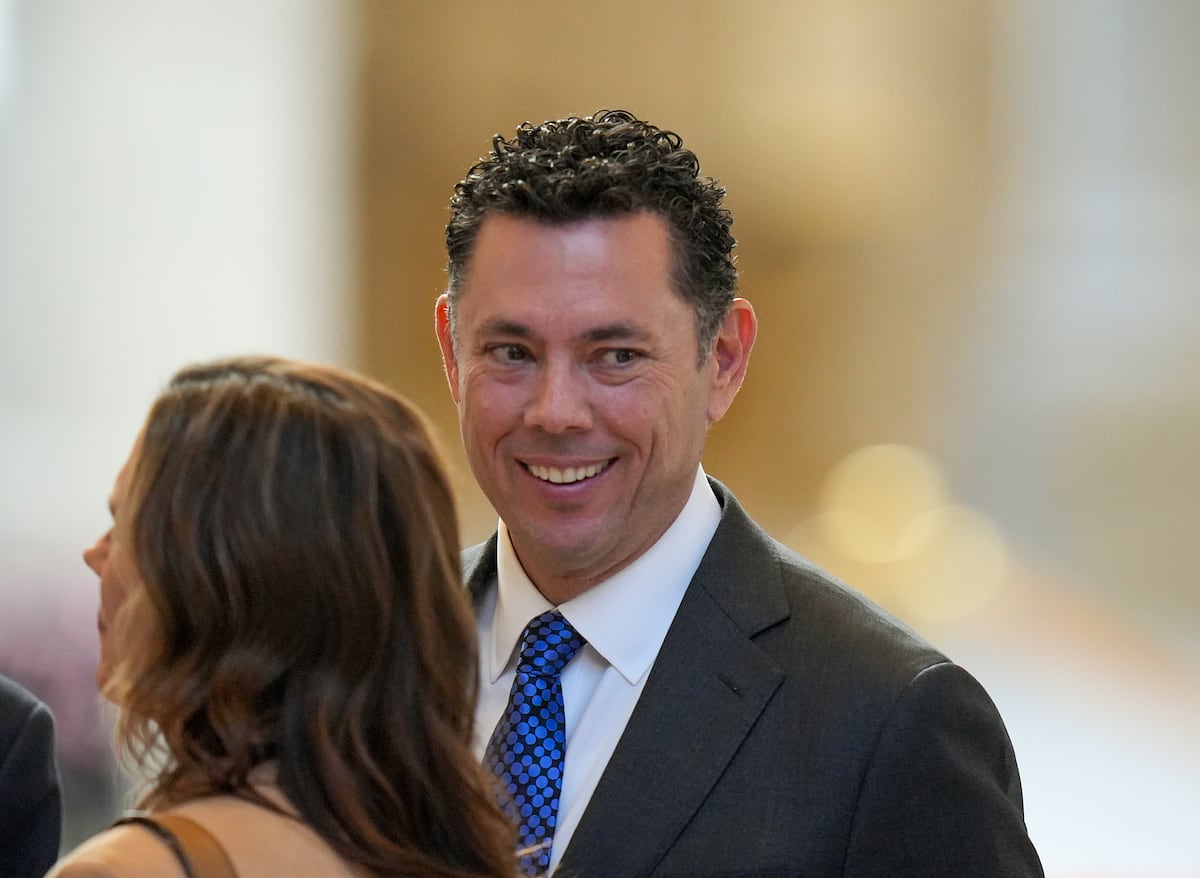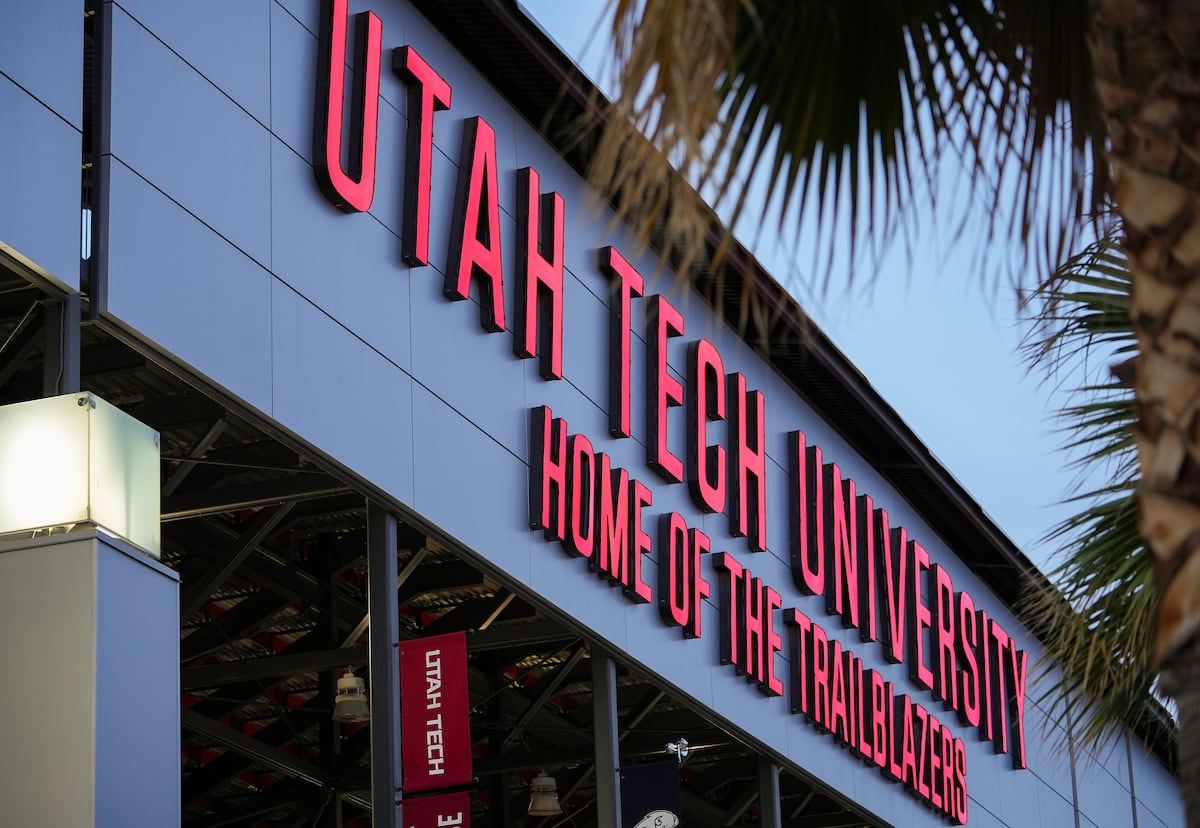Armstrong also re-signed the right pending free agents, each to seemingly fair deals. He still has Jack McBain’s contract on his to-do list, but there’s plenty of time before the June 30 RFA …
Now that the Utah Hockey Club/Mammoth’s inaugural season has come to an end, we’re taking a closer look at each team member’s performance. In this, the third article in the three-part series, we’ll evaluate the goalies, coaches and management.
See part one for assessments of the forwards and part two for the defensemen.
Karel Vejmelka
Grade: A+
During training camp, I remember discussing Utah’s goaltending situation with a small cohort of reporters. My take was that Karel Vejmelka was good enough to play at least a 1B role, splitting the games evenly, give or take, with his partner.
Advertisement
My opinion was met with strong opposition — but as the season progressed, it turned out he was even better than I thought.
The circumstances of Vejmelka’s emergence weren’t ideal, with Connor Ingram taking a leave of absence due to the poor health and subsequent passing of his mother. But he took his opportunity and he didn’t look back.
Among goalies who played 17 games or more during that stretch, Vejmelka tied 2022 Vezina Trophy runner-up Jacob Markström for second in save percentage, behind only defending Vezina winner Connor Hellebuyck.
Toward the end of the season, Utah relied on Vejmelka in a way no team had since 2015, starting him in 23 consecutive games. While he did have a pair of near-career-worst save percentages in late March, he usually gave his team the chance to win — and that’s all you can ask of a goalie.
Had it not been for Vejmelka, Utah may have earned the fourth overall pick, rather than winning it in a game of chance. He signed a long-term contract in March, and one could argue that he’s already earned every dollar of it.
Connor Ingram
Grade: N/A
It’s impossible to judge Ingram’s season fairly. Goaltending is all about mental resilience, and Ingram was not in the right place mentally this season.
Advertisement
He reentered the player assistance program in March, where he’ll ideally get the help he needs and be able to live life to its fullest.
Jaxson Stauber
Grade: B
At some points this season, Jaxson Stauber looked like a strong candidate for a permanent NHL job — especially when he earned the franchise’s first-ever shutout. At other points, though, he showed why the majority of his games came at the AHL level.
As head coach André Tourigny said all season, the difference between an NHLer and an AHLer is that the top guys bring their “A” game most nights and their “B” game occasionally, but they rarely bring their “C” game.
Advertisement
That’s doubly true for goalies: When they have bad nights, the team loses — everything they do matters.
Stauber got a contract extension just after the season ended. While his NHL salary remains at league minimum, he received a $220,000 raise at the AHL level. That’s an indication that management believes he can achieve more next year.
Matt Villalta
Grade: B
Utah-based fans didn’t see much of Matt Villalta this year, as his primary job was to hold down the fort for the Tucson Roadrunners while Stauber accompanied the NHL club.
Villalta played the third-most minutes of anyone in the AHL this season, and one more full game would have put him in first place. In his only NHL appearance of the year, he recorded 31 saves on 34 shots to secure his first NHL win.
Advertisement
Depending on how the Mammoth decide to proceed with their goalie situation, Villalta could get more big-league looks next year. All it takes for a goalie to solidify himself in the NHL is a stretch of good games — look at Montreal’s Jakub Dobeš.
André Tourigny
Grade: C+
Tourigny often talks about the distinction between the player and the person — he can criticize a guy’s on-ice play while maintaining a high opinion of him as a person. I want to make the same distinction here.
In my almost daily interactions with Tourigny, he has treated my fellow reporters and me with respect — even when he dislikes our questions. But there were a handful of times throughout the year where adjustments could have been made and the team could have won more games.

Utah Hockey Club head coach André Tourigny talks with his players during a game between the Utah Hockey Club and the Dallas Stars at the Delta Center in Salt Lake City on Monday, Dec. 2, 2024. | Brice Tucker, Deseret News
Part of a coach’s responsibility is to get the most out of every player. While Tourigny was successful at that with Clayton Keller, Dylan Guenther, Mikhail Sergachev and a bunch of others, there’s a list of middle-six forwards who struggled so hard they became bottom-six guys.
Advertisement
Lawson Crouse, for example, saw a year-over-year production decrease of more than 50%, despite playing the same number of games both seasons. Matias Maccelli, who scored 57 points in his final year in Arizona, dropped off so hard the team could hardly trust him to suit up the final two months of the season.
Neither guy spoke of what they’d been instructed to do to get better — only what they personally thought of during their time in the press box.
Similar things can be said of Nick Bjugstad, Michael Carcone, Juuso Välimäki and Vladislav Kolyachonok — and it ultimately cost them a few of those guys.
Tourigny’s approach, at least from an outside perspective, seemed to be one of rewarding and punishing players based on their play, rather than helping them get back to the respective levels at which they’re capable of playing.
Advertisement
Those strategies are sometimes necessary for contending teams during the playoffs, but they can do much harm to a developing team in the middle of the regular season.
That being said, Tourigny also had plenty of triumphs this year. His game preparation often allowed Utah to surprise some of the league’s best teams, including a 3-0-1 record against the Minnesota Wild and a 2-2-0 versus the Winnipeg Jets.
A little more focus on open-ice play could have propelled Utah into a playoff spot, as they couldn’t seem to catch a break at 4-on-4 during regulation or at 3-on-3 in their many overtime games.
At any rate, the group did much better than it had in some time in Arizona, and Tourigny should get a good portion of the credit.
Bill Armstrong
Grade: A
Everything Bill Armstrong did over the offseason worked out to Utah’s benefit: Trading for Mikhail Sergachev and John Marino; signing Kevin Stenlund, Ian Cole and Robert Bortuzzo.
Advertisement
His sole in-season roster trade was also a slam dunk: swapping a third-round pick for Olli Määttä (though at the time I thought he’d overpaid, considering Määttä was Detroit’s seventh defenseman when the trade happened).
The experience of all these veterans was apparent all season long, stabilizing the team during chaotic points in games. Credit Armstrong for recognizing that need and filling it with Stanley Cup champions.

Bill Armstrong, general manager of the Utah Hockey Club, speaks to the media at the Delta Center in Salt Lake City on Wednesday, Sept. 18, 2024. | Laura Seitz, Deseret News
The Nick DeSimone waiver claim was another positive. Though he didn’t get to play every night, he never looked out of place when he did get into the lineup.
Armstrong also re-signed the right pending free agents, each to seemingly fair deals. He still has Jack McBain’s contract on his to-do list, but there’s plenty of time before the June 30 RFA qualifying offer date to get it done.
It takes a few seasons for a GM to really build a resume, but there’s hardly a critical word that can be said about Armstrong since the day he took over the Coyotes.
Source: Utah News










